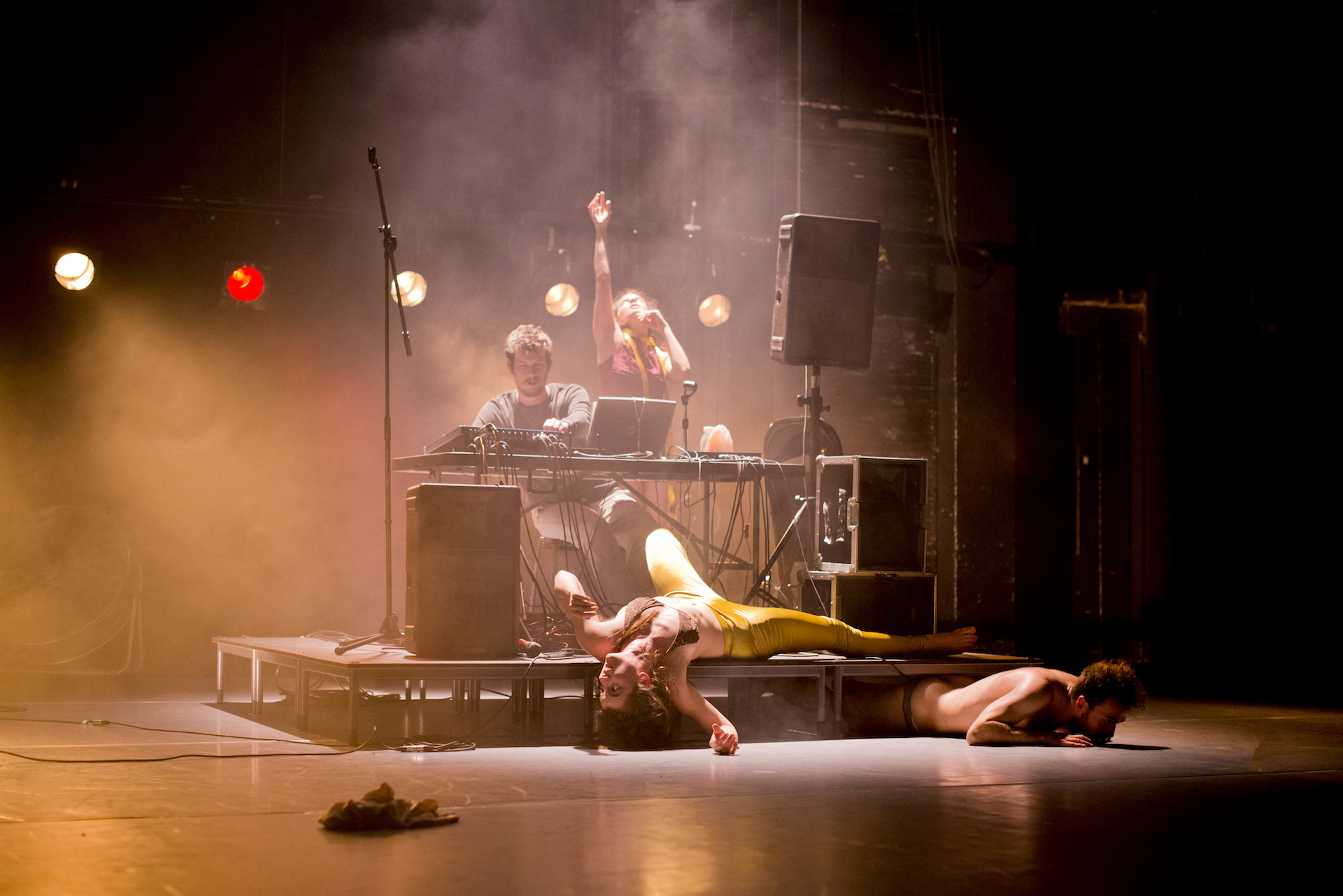Eva is a Choreographer who lives and works in London. Eva has been an associate artist at the Place and is a graduate of Sadler’s Wells Summer University.
Eva’s work explores the use of text in dance blending words and movement to create meaning in a technical exercise. Her interest in creating a movement language based on rhythmic behaviour and spatial relationships was evident in her critically acclaimed works Begin to Begin and The Wishing Well, for which she was a Place Prize Finalist in two consecutive occasions (2011 and 2013).
Begin to Begin was set to the nursery rhyme Michael Finnegan whose circular logic of its lyrics was reflected in the dance phrases stopping, starting and embellishing the dance into an elegiac, comic and anarchic event. The Wishing Well became an exercise in narrative techniques, and a reflection on the problematic of authorship and agency of the performer in the work. She cites her influences to include choreographer William Forsythe, painter Bosch and Bertolt Brecht, who also encouraged emotional distance of the audience from the fiction on stage, highlighting the constructed nature of the theatrical event.
In 2012 Eva was a recipient of the Marion North Mentoring Award and was subsequently mentored by Portuguese choreographer Rui Horta. During that time she conceived and produced Easy Rider, her first full-length work, which premiered at The Place Spring Loaded season 2014. Later that year Eva was invited to curate a Wild Card evening at Lilian Baylis Theatre, Sadler’s Wells.
In 2015 Eva initiated a research called Afterlife, with residencies at The Place, the Wellcome Reading Room, and the Manchester Metropolitan University. During this research she conceived the idea for Aftermath, a new full-length work commissioned by Sadler’s Wells as part of their 20th Anniversary Commissions. Aftermath premiered at Sadler’s Wells in Autumn 2018 and it reflects the growing interests in Eva’s work; scepticism, the role of the performers as individuals, text as part of the choreographic fabric, and the politics of performance in terms of who acts under who’s command, under what premises, and for who or for what. The piece was conceived as a means to relate to current issues such as the idea of ‘Post-everything’ (post-feminism, post-truth, post-idealism, post-humanism) and what that means to us as individuals with particular experiences of value, justice, agency, or the lack of those. In ‘an imagined world’ were the only option is to be resilient, what is our motivation for being so? Is motivation possible in a post-truth era?
